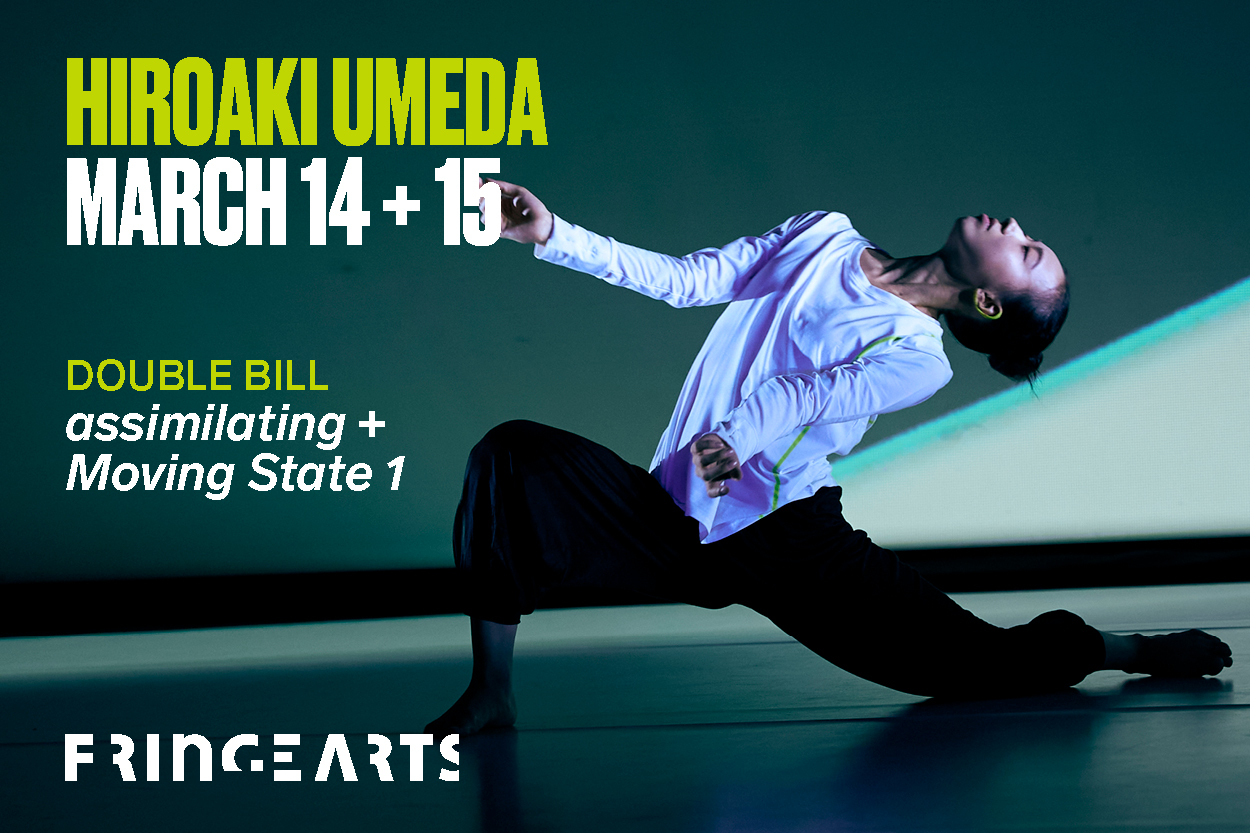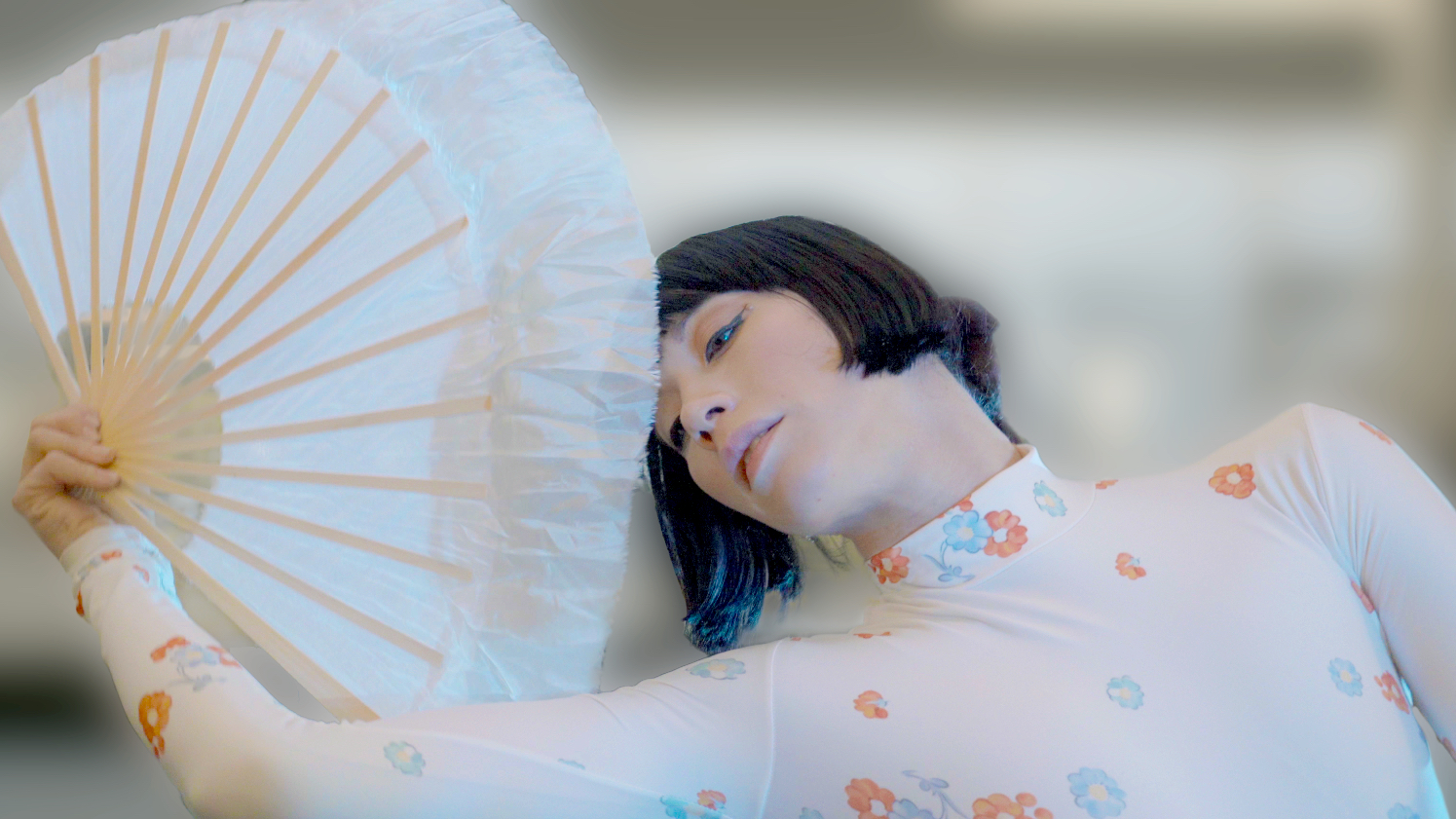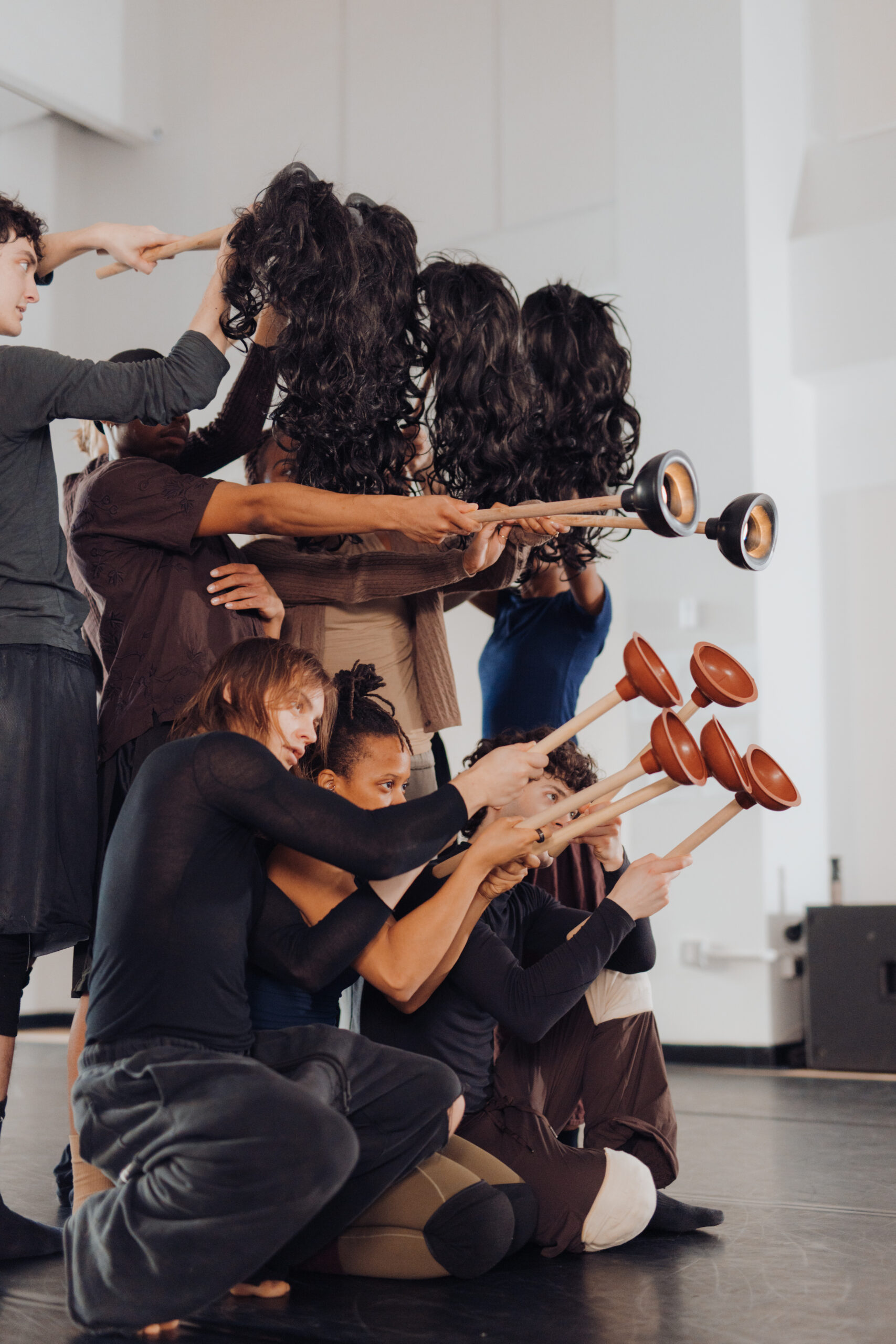There are a lot of institutions, thINKingDANCE included, that are beginning the work of decolonizing their spaces. One aspect of this work is recognizing the great disparity of wealth in this country, and who is under-represented in arts communities due to the visibility that funding secures for a person. Philanthropy and the inequitable way funding is handled in this country, is the subject of a new podcast from Miguel Gutierrez set to premiere August 9th. I sat down with its creator and producer on Zoom to discuss how this came about and what to expect from the series.
Emilee Lord: Your podcast is specifically tackling the funding for dance making. What got you to dig into this research and how did you decide it would be best served through a podcast?
Miguel Gutierrez: So I presented a piece in 2019 called This Bridge Called My Ass. And I, as I always do, applied for a bunch of stuff. I only got one of the things that I applied for. And I was very upset and confused from multiple vantage points. And so there was just the kind of ego blow of that. And when I got over that moment, I was like, okay, but really, how does this work? Given that there are these very limited places to turn to for support, what happens when you don’t get the support? And then on top of that I made a commitment to pay people.
EL: Where did you turn when you started to ask these questions?
MG: I read Decolonizing Wealth. I started thinking well, what are these institutions that I’m so desperate to get this recognition from? Or that I got recognition from in the past? I had a passing understanding of philanthropy and funding and certainly understood a lot about the application process, but I hadn’t really gotten to this question of where’s this money from? What does it mean that it’s out there? What are all the different implications of this particular mode of support? And so that’s kind of what got me down the rabbit hole as it were. And then I was like, I should do a podcast about this. This isn’t something I want to make a dance about but this feels like something that I want to be able to sort of name and talk about in a public way.
EL: Who are you having this conversation with? Are there funding organizations and institutions that are willing to discuss this with you?
MG: So far, I’ve mostly spoken to artists and a couple more administrative type folks. As the podcast is being developed, I’m hoping to speak to a bunch of funders. I feel like I have relationships with lots of different folks in that field. Right now I’m thinking through eight or nine episodes, and there’s three that are either done or close to being done. I’m trying to get some of those conversations on the schedule before this thing comes out. I think people are ready for this conversation, because there has been a shift, certainly during COVID and in certain pockets of the dance world. A push towards transparency and the ability of people coming from this field to speak back to the system.
EL: How’s the conversation happening?
MG: What’s recently happened with Emily Johnson and the Montclair State stuff, that’s been really powerful. And Emily is certainly nobody’s wallflower. She’s very articulate and very well positioned. And again, she is also someone who’s received a lot of support for her work. So I think it’s kind of on us, those of us who have gotten those privileges and those accesses, to open up these conversations. I feel at this point, it’s part of my job. For all the research I’ve done, conversations I’ve had, books I’ve read, I don’t have an obvious solution. I don’t think we get to escape. I don’t think we get to access some sort of ethical space where these things are no longer an issue or problem.
EL: It sounds like you’re saying that a historically and financially literate group of artists is more capable of putting the pressure on because they understand how this stuff works. Is this literacy the goal of the series?
MG: Anybody who has information is more powerful,right? What you choose to do with that power, that’s up to you. I certainly have informed myself into a little bit of a cynical corner at the moment with all this stuff, where I’m like, I don’t know how this works, y’all. But someone else may learn this information and see a way out that I don’t see, or at least be able to walk into a conversation more informed. Because all these tropes and conversations about money in art making are all historical; there’s reasons why we think the way we think. There’s a lot to dismantle. It’s important for people to know, because we have very short term memories and we don’t necessarily realize this is why it failed or this is why it succeeded.
EL: From the description of your podcast on your site, what do you mean by “the ethical entanglements between money and art making”?
MG: Money is dirty. Most philanthropy is money that was made in less than savory ways, on the backs of people who did not reap the benefits of that wealth. So when we have that kind of unbelievable level of wealth, which has been true in American history, there is therefore a wealth disparity. And that wealth disparity is not just necessarily tolerated, but celebrated as an example of “mobility.” A lot of wealthy people create philanthropic organizations as forms of reputation laundering. Take the Koch brothers, who have been instrumental in bankrolling some of the most conservative political movements of our era, and have their names on [the former New York State Theater] and that stage is being covered by artists whose lives are adversely affected by the policies that these same motherfuckers support. So that’s the ethical entanglement right there, I’m stepping onto a stage that was bought and paid for by someone who, with their other gestures, is trying to eradicate people like me or the rights that people like me need in the world. It’s not a clean thing. That’s always probably been the case and this is a kind of story of America.
EL: Is there someone doing this well, or at least trying to be more ethical about their approach and their funding and maybe more transparent?
MG: I think a lot of funders have been going through a kind of crisis of conscience. Elizabeth Alexander, the director of the Mellon Foundation, and Darren Walker of the Ford Foundation. They are trying to problematize the narrative of the foundation as cultural messiah, and look at the ways in which philanthropy itself is an outgrowth of an imbalanced system. The very reason it exists is because of capital accumulation. It’s not like there’s some sort of shitty financial system, and then there’s philanthropy. I can be optimistic, I can be cynical, you know, I can look at it in multiple ways.
EL: Where do we find you, and how do we follow this and participate?
MG: We will start putting out episodes on August 9th. In an ideal world I’ll put out three episodes a month. It’s a lot of work I found out, because I’m not just publishing interviews I’m producing them, but that’s the goal. The website is the easiest way to get to the episodes and the Instagram handle is @areyouforsalepodcast
Are You For Sale? , Miguel Gutierrez, podcast premiering Aug. 9.






